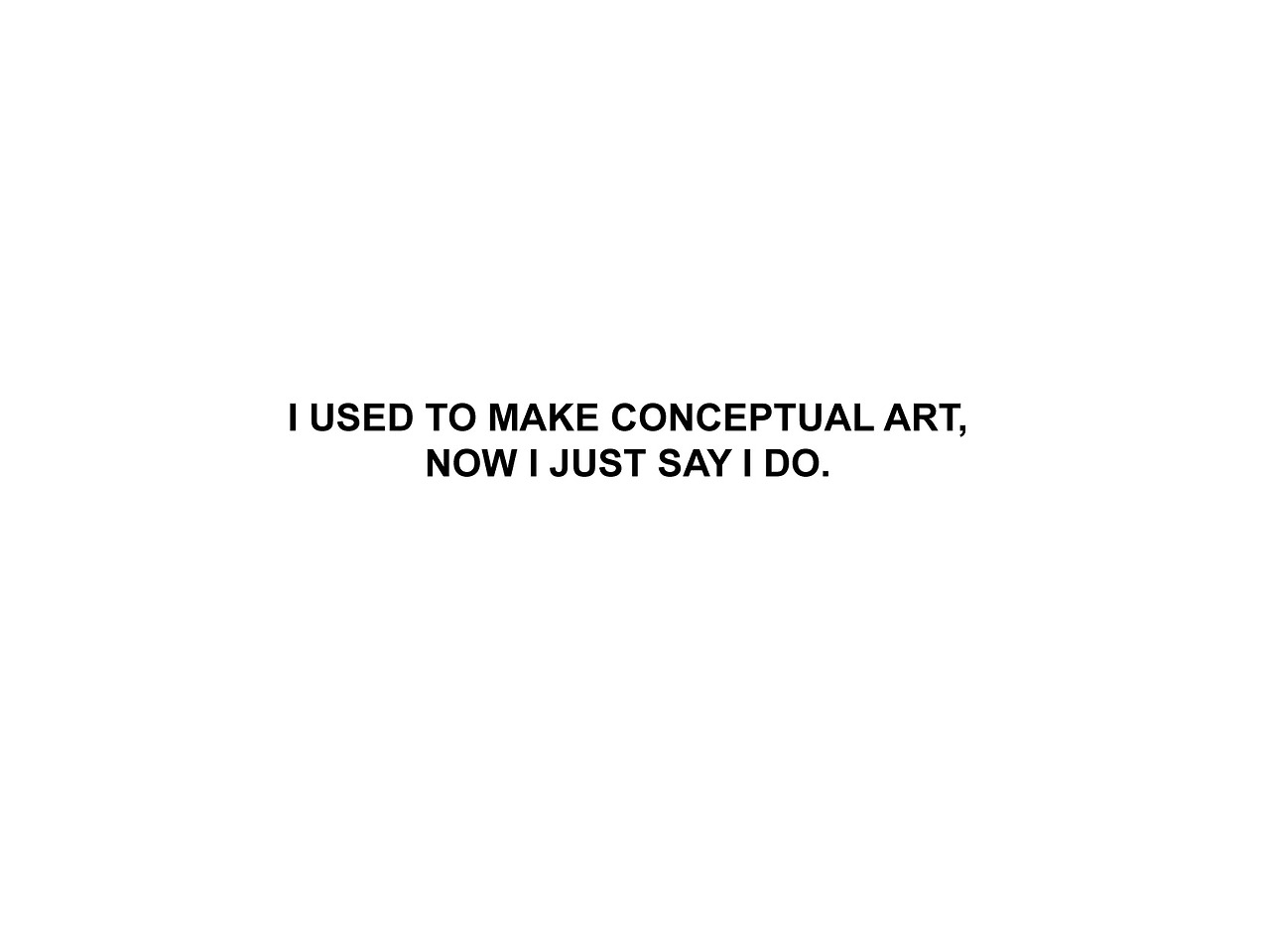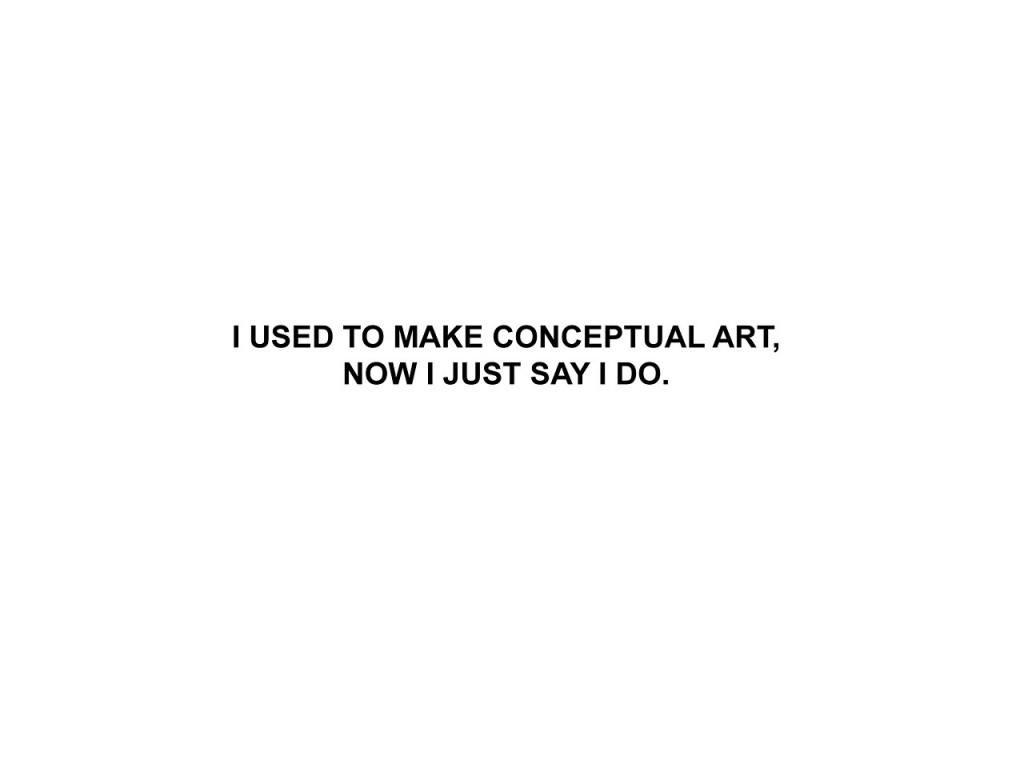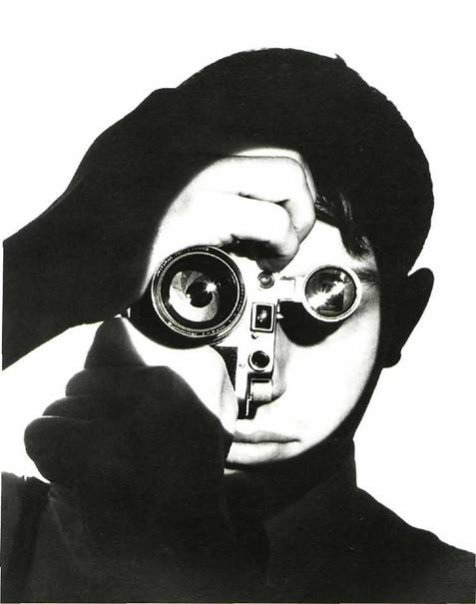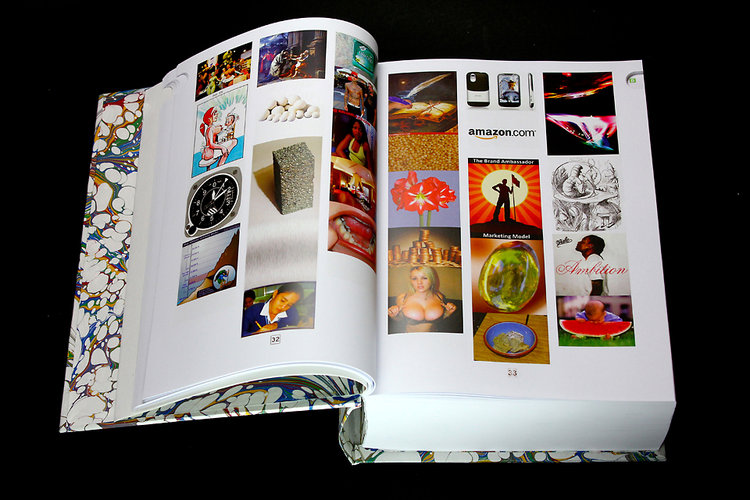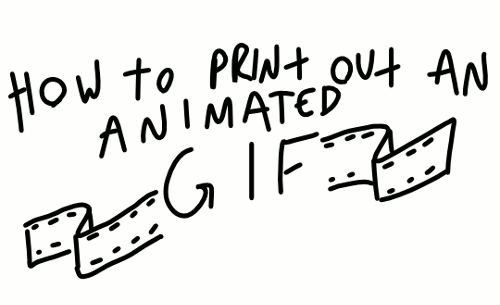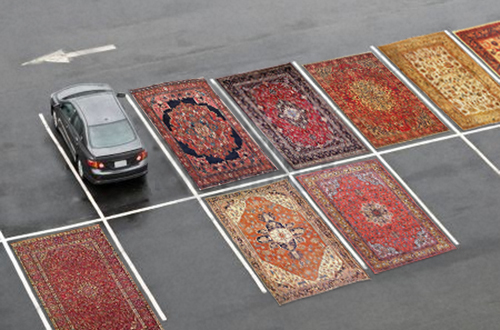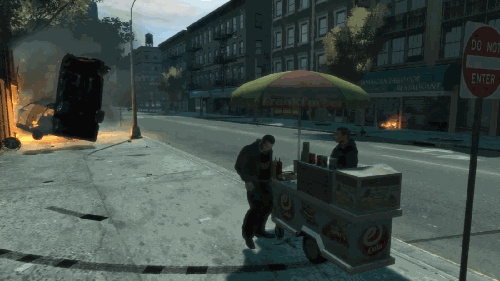[found here]
The world’s first cyborg
Born with achromatopsia, a rare condition that causes complete colour blindness, Neil Harbisson developed the eyeborg, a device that translates colours into sounds for him.
[via kottke]
Lol
A Short History of the Death of Culture
I just say I do
Emoji Art History
New Lyrics for Old Songs
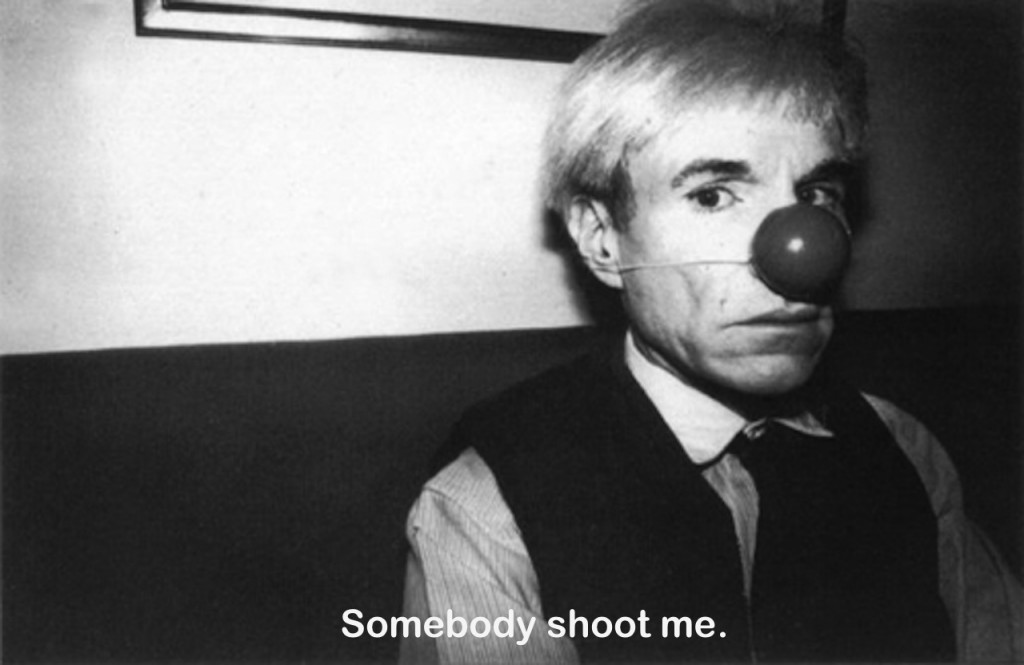
Mark McEvoy is a british artist and illustrator. “New Lyrics for Old songs”, his most recent series, is an ongoing investigation on the relationship between images and text. New words are juxtaposed with old photographs, famous works of art and book covers, suggesting new interpretations and multiple meanings. Also, the project seems to suggest that any image, with an appropriate caption, can turn into an internet meme.
http://markmcevoy.tumblr.com
http://www.behance.net/markmcevoy
[posted on ArcoBloggers.com]
Simply by men
You are always looking for an emotion that has already been felt, just as you like to get an old pair of trousers back from the cleaners, which seem new as long as you don’t look too close. Artists are cleaners, don’t be taken in by them. The real modern works of art are not made by artists, but quite simply by men.
Francis Picabia, in Jesus Christ Rastaquouère (1920)
The Photojournalist
Frozen sweat


Minus (2002) by Christoph Büchel: a punk-concert was held inside a room at the Kunstverein Hannover. Immediately after the show, the entire room was frozen.
I have an art blog
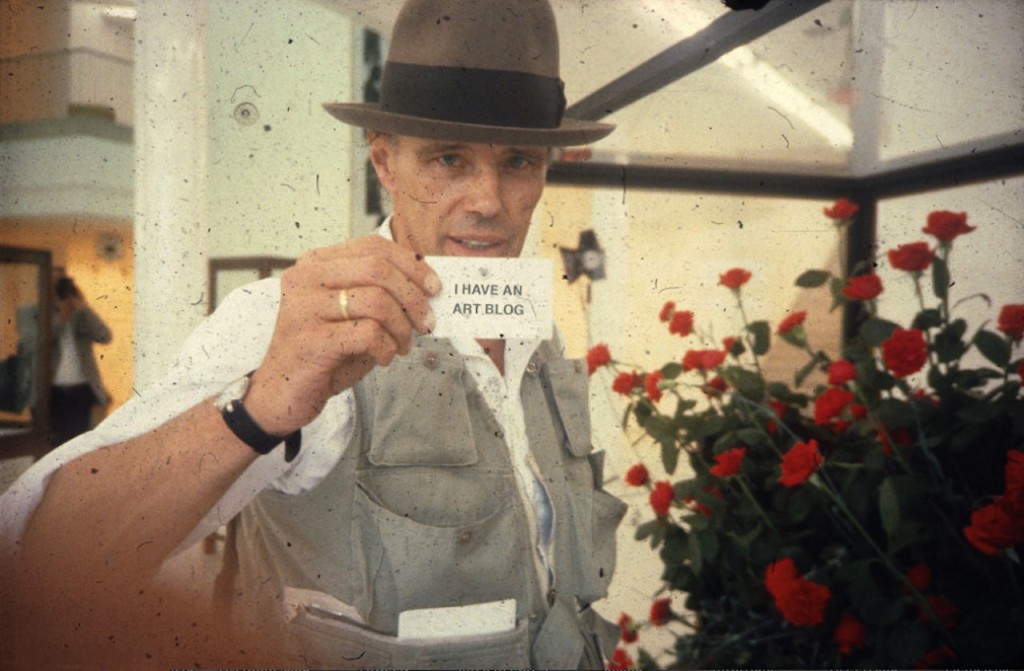
[via markmcevoy]
Your cinema is invalid

[found here]
Google Images Dictionary
How to print out an animated gif
ot.pdf
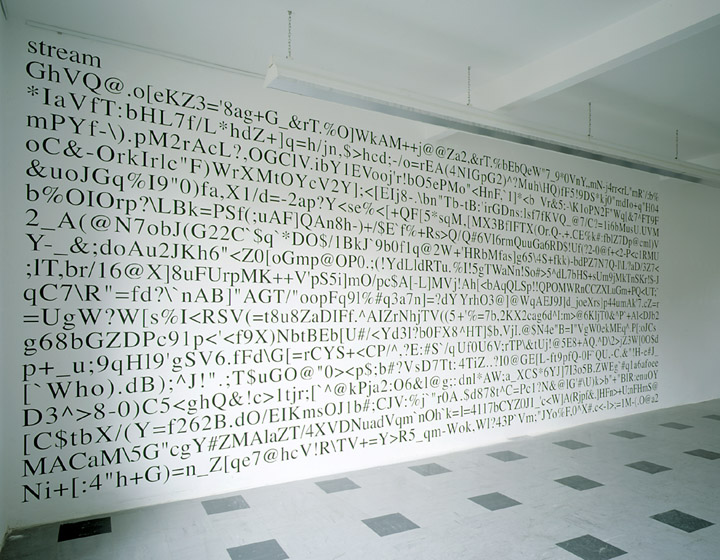
ot.pdf 2000, by Holger Friese
The Art of Creative Coding
Beam me up, Mike!

Beam me up, Mike! , 2010
Scripted sculpture. 50 x 90 x 192 cm
“Beam me up, Mike! is a reorganized voxels of The statue of David by Michelangelo. By means of scripted modeling, the sculpture is voxelized in total 8 steps of refining cubes. The size of voxel cubes starts from 120mm of edge length and scales down to half each step. The top part (head of the statue) is in original shape as it represents ultimately refined voxels.”
Occupy Parking Lots (with Persian Rugs)
LSD: Dream Emulator
“LSD (Also known as LSD: Dream Emulator) is a semi-rare video game released in Japan in 1998 for the Sony PlayStationvideo game console based on a dream journal that Hiroko Nishikawa, a staff member at Asmik Ace Entertainment, had been keeping for a decade.”
Book Alterations

Book alterations and rearrangements by New York based artist Kent Rogowski. Amazing work.
[via beautiful decay]
/r/GamePhysics
Milking is the new planking
A History of Political Remix Video (Before YouTube)
A History of Subversive Remix Video before YouTube: Thirty Political Video Mashups Made between World War II and 2005 – Curated by Jonathan McIntosh
“Filmmakers, fans, activists, artists, and media makers have been reediting television, movies, and news media for critical and political purposes since almost the very beginning of moving pictures. Over the past century, this subversive form of populist remixing has been called many things, including appropriation art, détournement, media jamming, found footage, avant-garde film, television hacking, telejusting, political remix, scratch video, vidding, outsider art, antiart, and even cultural terrorism.”
See the complete article and video collection via the Open Access online journal Transformative Works and Cultures:
http://journal.transformativeworks.org/index.php/twc/article
Amazon Random Shopper
Darius Kazemi wrote a bot that buys him random crap:
“I’ve had an idea for a long time now. It’s inspired by one of my favorite feelings: when you order something on Amazon, and it’s put on backorder, and then you forget you ordered it, and a year later it arrives—and it’s like a gift you bought yourself.
Well, I thought: what if I just wrote a program to buy stuff for me? The first iteration of this was going to be a program that bought me stuff that I probably would like.
But then I decided that was too boring. How about I build something that buys me things completely at random? Something that just… fills my life with crap? How would these purchases make me feel? Would they actually be any less meaningful than the crap I buy myself on a regular basis anyway?
So I built Amazon Random Shopper. Every time I run it, I give it a set budget, say $50. It grabs a random word from the Wordnik API, then runs an Amazon search based on that word. It then looks for every paperback book, CD, and DVD in the results list, and buys the first thing that’s under budget. If it found a CD for $10, then the new budget is $40, and it does another random word search and starts all over, continuing until it runs out of money, or it searches a set number of times.”
[via kottke]




